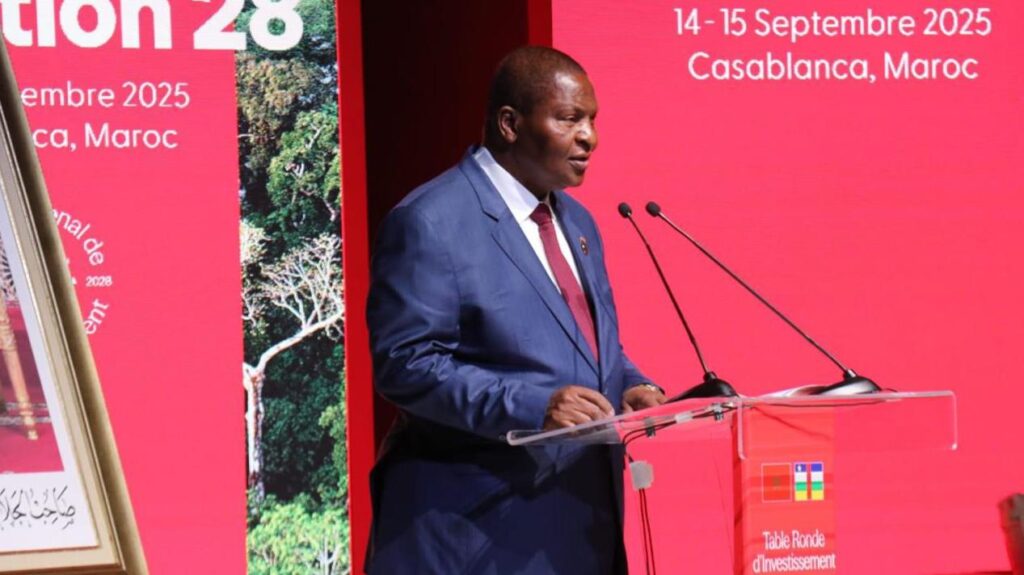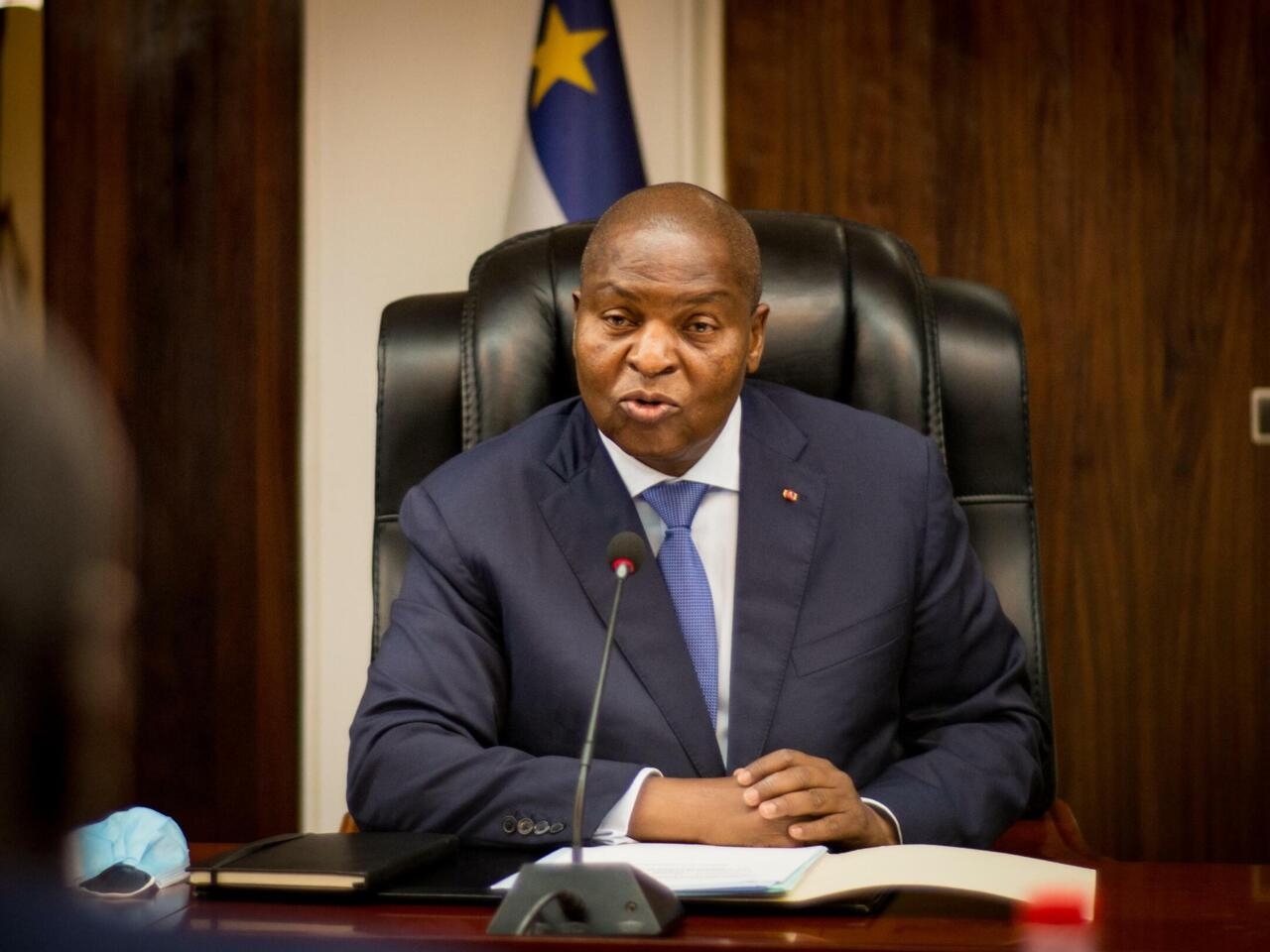Casablanca (14–15 September). The Central African Republic (CAR) closed its investment roundtable with a milestone announcement: $9 billion in financing pledges—nearly CFAF 5 trillion—to support the National Development Plan (NDP) 2024–2028. Beyond the headline figure, the meetings brought together technical partners, financiers, and global investors, signaling a renewed confidence in the government’s strategy and a fresh phase in CAR’s economic diplomacy.
President Faustin-Archange Touadéra, present in Casablanca, welcomed the mobilisation: “At this very moment, the CAR is reaching out to build with you the future—an Africa that innovates, produces, and shines.” He also stressed the need to convert commitments into tangible projects that lift growth, reinforce infrastructure, and improve living conditions.
What the mobilisation reveals
- Scale and signal: Multi-billion-dollar pledges over two days indicate a stronger alignment between CAR’s priorities and international partners’ mandates.
- Strategic framing: The NDP serves as a single, credible roadmap—anchored in diversification, infrastructure, productive sectors, human capital, and governance.
- Pipeline orientation: Authorities presented a prioritised pipeline designed to channel funding toward bankable projects and quick wins with strong developmental impact.

Turning pledges into projects
Progress in the next 6–18 months will hinge on three disciplines:
- Project preparation and structuring: feasibility studies, robust business models, PPP/DFI frameworks, performance and transparency clauses;
- Budget execution and macro anchoring: pacing investments with fiscal space and risk management;
- Governance and business climate: procurement quality, security, guarantees, and dispute resolution to keep disbursements on track.
The order of magnitude
The pledged amount represents several times the country’s annual GDP, underlining both the ambition and the need for gradual absorption, careful sequencing, and strict project selection to maximise value for money.
Where the first dollars should go
- Infrastructure and energy: logistics connectivity and reliable power as foundations for light industrialisation and responsible resource development;
- Agro-industry and value addition: local processing, cold chains, irrigation, and market access to lift productivity and rural incomes;
- Human capital and essential services: education, health, water and sanitation—drivers of long-term productivity consistent with NDP priorities.
Risks to watch, opportunities to seize
Execution will be measured by effective disbursements and on-the-ground delivery. Fragile fundamentals (poverty, electricity constraints, fiscal pressure) call for disciplined implementation. On the upside, Casablanca provides:
- an investor-confidence boost, putting CAR back on the radar of long-term capital;
- a project-prep window with DFIs and technical partners to move quickly on bankable assets;
- a regional lever within CEMAC—corridors, power interconnections, and common standards can multiply impact.
Our take (Cemac-eco.finance)
Casablanca marks a turning point of trust. To convert momentum into durable growth, CAR will need transparent tenders and public milestone tracking (financial closings, groundbreakings, commissioning), PPP governance at international standard (risk sharing, step-in rights, dispute clauses), reform-linked disbursement schedules, and diversified instruments (guarantees, political-risk cover, climate co-finance) to lower the cost of capital.
The pledges open a historic window. If implementation matches ambition, Casablanca 2025 could stand as the pivot of CAR’s decade, shifting from announcements to delivery.



